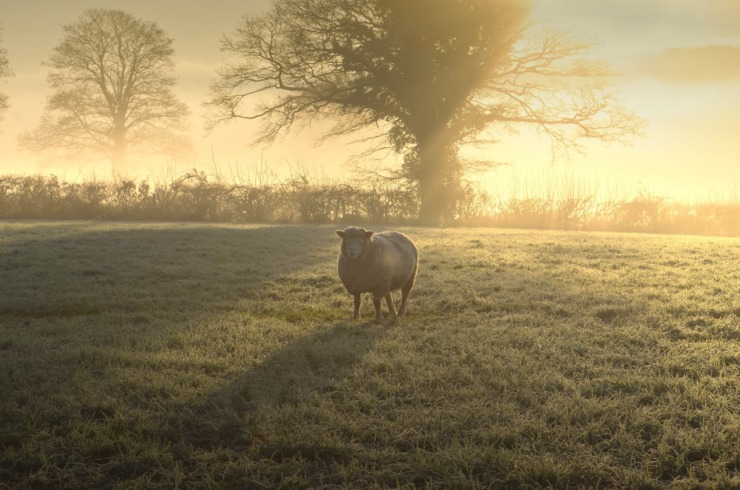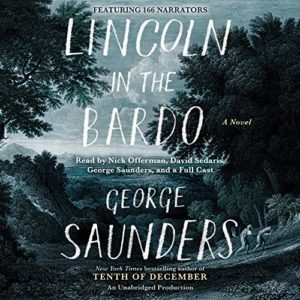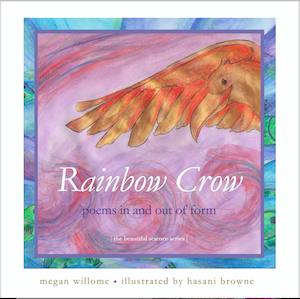 Character in the Bardo
Character in the Bardo
My son and I have a joke that if he wants me to watch something that’s a bit of a stretch, all he has to say is, “Mom, it’s got great character development,” and I’m in. That’s how he got me to watch the movie Everything, Everywhere, All at Once, which is a story about character development set in a multiverse. It turns out that in-between spaces are great for exploring character, be that a modern tale about string theory or the bardo.
Lincoln in the Bardo by George Saunders is about the character of President Abraham Lincoln, and it is set in the bardo, a Tibetan Buddhist idea describing the state of a soul between death and rebirth. The story takes place on one night. Following the death of Lincoln’s son Willie from typhoid fever, the boy was buried in a borrowed crypt in Oak Hill Cemetery. Newspapers reported that Lincoln visited the grave during the night, and Saunders uses that fact as the jumping off point to pull off a challenge—to help us see one of America’s greatest presidents more clearly.
This novel, George Saunders’ first, won the 2017 Man Booker Prize. Saunders is also the author of several short story collections, most of which fall into the realm of speculative fiction, and a book about the techniques of Russian writers. He teaches at Syracuse University and has been awarded a Guggenheim Fellowship and a MacArthur Fellowship. I like to point out that he hails from Amarillo, Texas, which is Hank the Cowdog country—very far from Georgetown, the neighborhood of Washington, D.C. where Lincoln in the Bardo takes place.
Scads of books have been written about Lincoln. In fact, Saunders quotes from many Lincoln biographies and newspaper accounts to set the stage and provide details, including, Elizabeth Hobbs Keckley’s Behind the Scenes or Thirty Years a Slave and Four Years in the White House. Saunders uses these sources like tiny links to the multiverse, presenting a plethora of Lincolns. One citation will tell us he was a good father. The next will tell us he was a terrible father. Facts blur and then enlighten. The various sources can’t even agree on the moon that fateful night — it was full … it was a crescent … it was beautiful … there was no moon.
The variety of perspectives is compounded because the cemetery is populated with a Spoon River-like cast of characters who narrate the story. (The audiobook has a cast of 166, including Saunders himself.) Lincoln does not speak, but we see him through the perspectives of the people who watch him in the graveyard that night.
Each resident of the bardo is a universe unto themselves — simultaneously appearing as the person they were and the person they are now and, as the novel unfolds, the person they are yet to be. As we see Lincoln through the eyes of Mr. Vollman and Mr. Bevins and Mrs. Hodge and Litzie and all the others, we see him more fully. I felt like I got to know him, not as a historical figure, but as a person who was changing with each turn of the page.
Mr. Thomas Havens, a Black man who gets the chance to inhabit Lincoln’s body and read his thoughts, says this about the president who would seven months later sign the Emancipation Proclamation:
He had no aversion to me, is how I might put it. Or rather, he had once had such an aversion, still bore traces of it, but in examining that aversion, pushing it into the light, had somewhat already eroded it. He was an open book, an opening book, that had just been opened up somewhat wider by sorrow…”
Sorrow opens us, if we let it. Not into a thing but into an opening. I like the idea that Lincoln’s character could grow only by dwelling for a few hours in an in-between place.
Often historians try to fix Lincoln into a box, as if he were one thing only. But he was many things, all at once. So are we all. To know character, we need more perspectives. We must hear from everyone, everywhere, to know anything.
Your Turn
1. Have you read a book set in a multiverse or other in between place?
2. What is a book about Lincoln that you found illuminating?
3. Share your June pages. Sliced, started, and abandoned are all fair game.
June’s Pages
Poetry
Bower Lodge, by Paul J. Pastor
Picture Books and Early Readers
Opal Lee and What It Means to Be Free: The True Story of the Grandmother of Juneteenth, by Alice Faye Duncan, illus. Keturah A. Bobo
Turtle Island ABC: A Gathering of Native American Symbols, by Gerald Hausman, illus. Cara and Barry Moser
I Talk Like a River, by Jordan Scott, illus. Sydney Smith
The Tempest, by William Shakespeare, adapted by Luke Paiva, illus. Roberto Irace
Middle Grade and YA
My Father’s Dragon, by Ruth Stiles Gannett, illus. Ruth Chrisman Gannett
Hatchet, by Gary Paulsen (Join us for Children’s Book Club, next Friday, July 8!)
Grownups
A Country Year: Living the Questions, by Sue Hubbell
Lincoln in the Bardo, by George Saunders
Planet Narnia: The Seven Heavens in the Imagination of C.S. Lewis, by Michael Ward
Photo by Alison Day, Creative Commons, via Flickr. Post by Megan Willome.
Browse more book reviews with Perspective
“Megan Willome has captured the essence of crow in this delightful children’s collection. Not only do the poems introduce the reader to the unusual habits and nature of this bird, but also different forms of poetry as well.”
—Michelle Ortega, poet and children’s speech pathologist
- Perspective: The Two, The Only: Calvin and Hobbes - December 16, 2022
- Children’s Book Club: A Very Haunted Christmas - December 9, 2022
- By Heart: ‘The night is darkening round me’ by Emily Brontë - December 2, 2022



Glynn says
I like Lincoln in the original the best. The Library of America has a two-volume set of “Lincoln’s Speeches and Writings” that is excellent. Really eye-opening for me was to read the transcripts of the Lincoln-Douglas debates of 1858 — the two men are arguing moral positions on the most contentious issue of their time, and the debate is extraordinarily similar to the arguments made on the most contentious issue of our time.
June Reading
Fiction
The Lost Tales of Sir Galahad by various authors
Mystery
The Sign of the Tooth by Craig Stephen Copland
The Case of the Hidden Flame by Alison Golden
The Templeton Case by J.S. Fletcher
The Tangled Treasure Trail by Benedict Brown
Death by Dark Waters by Jo Allen
A Fatal End by Faith Martin
Poetry
All That Will Be Known by Paul Mariani
Full Mouth by Sara Eddy
Tell the Bees by Sara Eddy
Desert Songs by Yahia Lababidi
History
Attack at Dawn and Whip Them: The Battle of Shiloh by Gregory Mertz
The Long Road North: A Guide to the Gettysburg Campaign 1863 by Robert Orrison & Dan Welch
Hell Itself: The Battle of the Wilderness May 5-7, 1864 by Chris Mackowski
Dawn of Victory: Breakthrough at Petersburg March 26-April2, 1865 by Edward Alexander
Non-fiction
Marking Darkness Light: The Lives and Times of John Milton by Joe Moshenska
Dorothy and Jack: The Transforming Friendship of Dorothy Sayers and C.S. Lewis by Gina Dalfonzo
Megan Willome says
Glynn, I don’t think I’ve read any of Lincoln in his own voice except the Gettysburg Address and the Second Inaugural.
That looks like an interesting book on Dorothy Sayers and C.S. Lewis. I only recently realized they were contemporaries.